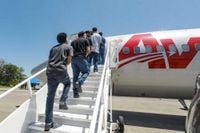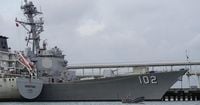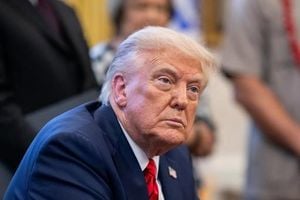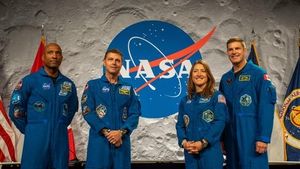The United States’ war on drugs has taken a dramatic—and, some say, dangerous—turn in the Caribbean. In September 2025, President Donald Trump and his administration ramped up military action against boats in the region, with the stated goal of halting the flow of narcotics into the U.S. But as the dust settles over the waters near Venezuela, critics are raising urgent questions about the legality, effectiveness, and true motivations behind these attacks. The story, as reported by multiple outlets including PolitiFact and Filter, reveals a tangled web of politics, dubious claims, and escalating violence.
It all began on September 2, 2025, when the U.S. military struck a boat off the coast of Venezuela, killing 11 people. This was only the first in a string of attacks—by September 19, a total of four strikes had killed at least 17 people. President Trump, addressing the United Nations in New York on September 23, boasted of the campaign’s effectiveness. “Let’s put it this way: People don’t like taking big loads of drugs in boats any more,” he said. “There aren’t too many boats that are travelling on the seas by Venezuela. They tend not to want to travel very quickly any more. And we’ve virtually stopped drugs coming into our country by sea. We call them the water drugs.”
Trump’s rhetoric was as fiery as it was factually questionable. He claimed that 300,000 Americans died last year from drugs—“fentanyl and other drugs”—and that each boat sunk by the U.S. carried enough drugs to kill more than 25,000 people. “To every terrorist thug smuggling poisonous drugs into the United States of America, please be warned that we will blow you out of existence,” he declared at the U.N., according to Filter.
Vice President JD Vance, at a press conference, added a touch of dark humor: “Hell, I wouldn’t go fishing right now in that area of the world!” His words, though, belied a grim reality. The identities of the people killed in the strikes remain murky. While the Trump administration insists they were gang members or drug traffickers, experts and local observers point out that the victims may have been fishermen or traders carrying rice and other goods. The government has not provided concrete evidence about the boats’ cargo or the affiliations of those on board.
Legal and policy experts have sounded the alarm about the administration’s approach. Ethan Nadelmann, founder of the Drug Policy Alliance, called the strikes “a shocking executive overreach in the drug war.” He noted to Filter that even John Yoo—the UC Berkeley law professor known for the Bush-era “Torture Memos”—has objected. In a September 23 op-ed, Yoo wrote, “Americans have died in car wrecks at an annual rate of about 40,000 in recent years; the nation does not wage war on auto companies. American law instead relies upon the criminal justice or civil tort systems to respond to broad, persistent social harms.”
In the background, the U.S. has dramatically increased its military presence in the Caribbean, deploying warships equipped with Tomahawk cruise missiles and even a nuclear-powered submarine. On September 15, the Trump administration escalated matters further by designating Colombia as noncooperative in the drug war for the first time in three decades, though it stopped short of imposing immediate sanctions.
Colombian President Gustavo Petro has not minced words in his response. Speaking to Colombian radio station La FM, Petro remarked, “Drug traffickers live in Miami, New York, Paris, Madrid and Dubai. Many have blue eyes and blond hair, and they don’t live on the boats where the missiles fall. Drug traffickers live next to Trump’s house in Miami.” Petro has long advocated for a public health approach and the legalization of cocaine, arguing that U.S. policies unfairly punish Latin American farmers and ordinary people. He sees the U.S. designation as a political move, intended to influence Colombia’s 2026 elections. “The Colombian people will reply if they want a puppet president … or a free and sovereign nation,” he said.
The U.S. has also set its sights on Venezuela. In late August, warships were dispatched to the country’s waters, and on September 15, Venezuela was added to the U.S. list of major drug transit and production countries. Trump has repeatedly accused Venezuelan President Nicolás Maduro of directing the gang Tren de Aragua to launch “warlike actions” against the U.S., including drug trafficking. He has labeled Maduro’s regime “the criminal regime of indicted drug trafficker Nicolás Maduro.”
Yet, as PolitiFact and InSight Crime report, the evidence for these sweeping claims is thin. An April 2025 U.S. intelligence report found no proof that Tren de Aragua is run by Maduro or is involved in significant transnational drug trafficking. The gang’s main activities are human smuggling, extortion, and small-scale drug sales in local neighborhoods. “For all the many sins of the Maduro dictatorship, there is no evidence to suggest that it is engaged in a war of terror against the US, or that it is using drugs and violent criminals to undermine the US government,” said Phil Gunson, senior analyst at International Crisis Group.
When pressed for evidence that the boats attacked by the U.S. military were carrying drugs or gang members, the White House declined to provide any. Trump told reporters that bags of cocaine and fentanyl were visible after the strikes, but aerial footage shared on social media did not corroborate this claim. Experts like David Smilde, a Tulane University sociologist, have pointed out that Venezuela’s role in U.S.-bound drug trafficking is minor compared to countries like Colombia and Mexico. “There is no evidence of fentanyl or cocaine laced with fentanyl coming from Venezuela or anywhere else in South America,” Smilde told PolitiFact.
Most fentanyl responsible for U.S. overdose deaths is manufactured in Mexico using chemicals from China and is smuggled in by U.S. citizens through official ports of entry. The Centers for Disease Control and Prevention reported 43,000 synthetic opioid deaths from May 2024 to April 2025, a significant drop from nearly 70,000 the previous year. “I would say it has zero to do with anything in South America or the Caribbean,” said John Walsh, director for drug policy and the Andes at the Washington Office on Latin America.
Venezuela does serve as a transit country for some cocaine, largely due to its proximity to Colombia, the world’s main producer. However, most cocaine entering the U.S. bypasses Venezuela, instead moving through Central America and Mexico, according to DEA data. The U.S. has also accused Maduro of leading the Cartel de los Soles, a network of corrupt officials who profit by protecting traffickers. Yet experts caution that this “cartel” is not a hierarchical organization but rather a system of corruption tolerated by the Venezuelan government in exchange for political loyalty.
Despite the Trump administration’s aggressive posture, critics argue that these military strikes will have little long-term impact on drug flows. “The drug trade is too profitable. The cartels will either pay people more to smuggle drugs by boat or find alternative routes, even use submarines,” said Nadelmann. The U.S. approach, he and others warn, risks harming innocent people, destabilizing the region, and undermining international law—all while doing little to address the root causes of America’s drug crisis.
As the boats burn and rhetoric flies, the world is left to wonder: Is this a war on drugs, or a war for political leverage in Latin America? For now, the waters off Venezuela remain a flashpoint, with real lives caught in the crossfire and no clear end in sight.





